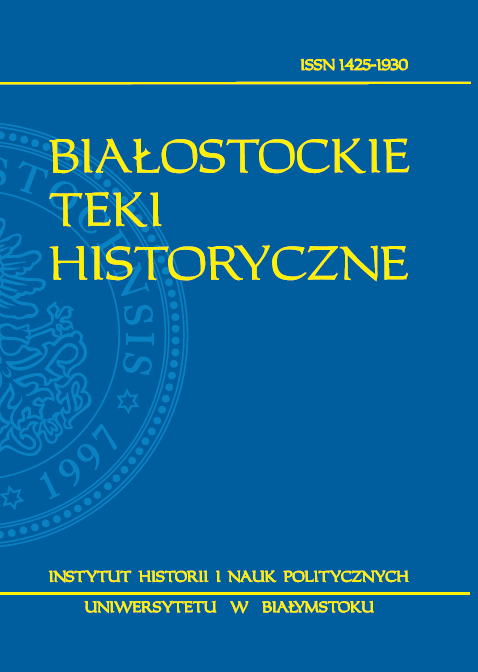Europa w podróżach Thomasa Jeffersona (1784–1789)
Europe experienced by Thomas Jefferson during his travels in 1784–1789
Author(s): Katarzyna StelmasiakSubject(s): History, 18th Century
Published by: Wydawnictwo Uniwersytetu w Białymstoku
Keywords: Thomas Jefferson (1743–1826); XVIII century Europe; XVIII century journeys; XVIII century American travel literature; XVIII century peregrinations
Summary/Abstract: Thomas Jefferson’s views on the contemporary world were mostly based on his own travel observations and experience. The diplomat visited Europe only once, and stayed there between 1784–1789. The major purpose of his visit was a political mission, during which he had a chance to observe France and other European countries. The present article, devoted to Thomas Jefferson’s visit to the Old Continent, describes the journeys he made to several European destinations and discusses his views and opinions on their inhabitants and culture. His correspondence, diaries and travel notes as well as Autobiography served as sources for the article. The diplomat did not publish any of his travel reports. During his five-year stay in Paris, Jefferson made three major journeys. In spring 1786 he went to England to help John Adams with business negotiations. He was received by the King in London. With some exceptions, England hardly impressed him. Another occasion to explore the European Continent was a-three-month journey to southern France and northern Italy made in spring 1787. Jefferson wanted to relax and improve his health in a warmer climate, and also to familiarise himself with the cultivation methods in southern France. Jefferson’s last European peregrination took place in spring 1788. He went to the Low Countries and the Rhineland. The purpose of the trip was to help John Adams to negotiate loans from the Dutch bankers, but the diplomat used this opportunity to make a longer journey along the Rhine to observe agriculture, tourist attractions and people’s everyday life. Leaving France in summer 1789, Thomas Jefferson could consider himself an expert on the Old Continent. The stay assured him that Europe was well ahead of the United States in almost every field, yet it lagged far behind in the government system. For this reason he believed that the future belonged to the New World.
Journal: Białostockie Teki Historyczne
- Issue Year: 2015
- Issue No: 13
- Page Range: 145-168
- Page Count: 24
- Language: Polish

